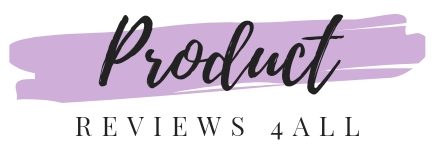In the heart of modern America, there’s a resurgence of interest toward age-old practices that have sustained civilizations for millennia. This isn’t a mere trend but a deep-rooted realization that, amidst technological progress, nature holds time-tested secrets to holistic well-being. In this expansive exploration, we’ll uncover ancient remedies and practices, their origins, and how to adapt them to our fast-paced lives in the USA.
1. The Timeless Tapestry of Traditional Medicine
Traditional medicinal practices span the globe, each resonating with the unique cultural and environmental essence of its origin.
- Ayurveda: An Indian system emphasizing balance in bodily systems using diet, herbal treatments, and yogic breathing.
- Traditional Chinese Medicine (TCM): With its roots in ancient China, TCM uses herbs, acupuncture, and qigong to maintain health.
2. Plant Power: Herbal Wisdom Across Ages
Nature’s pharmacy is rich, diverse, and profoundly effective.
- Turmeric: This golden root, a staple in Ayurvedic practices, boasts anti-inflammatory and antioxidant properties.
- Ginseng: Central to TCM, ginseng is believed to boost energy, lower blood sugar, and promote relaxation.
3. Energy Healing: Tapping into the Body’s Meridians
Beyond the tangible, ancient practices also address the body’s energetic realm.
- Acupuncture: Using fine needles, practitioners stimulate specific points on the body, regulating the flow of Qi (energy).
- Reiki: Originating from Japan, Reiki is a hands-on healing technique focusing on life force energy.
4. Sacred Spaces: Nature’s Therapeutic Sanctuaries
Healing often transcends methods and is about where you are.
- Forest Bathing (Shinrin-Yoku): A Japanese practice of immersing oneself in forests, it’s shown to reduce stress hormones, lower anxiety, and improve mood.
- Salt Caves: Historically found across Europe, these caves offer relief for respiratory issues and skin conditions.
5. Body Movement: Ancient Disciplines for Modern Vitality
Cultivating physical vitality through ancient methods offers profound benefits.
- Yoga: With roots in ancient India, yoga integrates breath, movement, and meditation for physical and mental wellness.
- Tai Chi: Often described as “meditation in motion,” this Chinese martial art is excellent for balance, flexibility, and peace of mind.
6. Culinary Cures: Ancestral Diets for Today’s World
Food as medicine is a prevailing theme in ancient wellness traditions.
- Mediterranean Diet: Rich in olive oil, fish, whole grains, and fruits, it’s linked with longevity and reduced risk of chronic diseases.
- Bone Broths: Used for centuries in various cultures, these broths are believed to heal the gut and fortify the immune system.
7. Sonic Therapies: The Healing Power of Sound
Vibrations and frequencies have been integral to therapeutic processes across different cultures.
- Tibetan Singing Bowls: Used in meditation and healing rituals, these bowls produce sounds that promote relaxation and healing.
- Shamanic Drumming: Native American and other indigenous cultures employ rhythmic drumming for spiritual journeys and healing.
8. Aromatherapy: Nature’s Essence for Mind and Body
Plant-derived aromatic compounds have been used for millennia for various health benefits.
- Lavender: Known for its calming properties, it’s extensively used in contemporary settings for sleep and relaxation.
- Eucalyptus: Native to Australia but celebrated worldwide for its antiseptic properties and respiratory benefits.
9. Mud and Clay: Earth’s Bountiful Benefits
Harnessing the curative properties of the earth itself has profound effects.
- Dead Sea Mud: Revered for millennia, it’s rich in minerals and offers therapeutic benefits for skin conditions and pain.
- Bentonite Clay: This absorbent clay is known for its detoxifying effects, drawing out impurities from the body.
Conclusion
As we stride into the future, the wisdom of the past serves as our guide. Integrating these ancient remedies into contemporary American lifestyles can be our beacon towards achieving holistic well-being, balancing the advancements of the present with the profound knowledge of yesteryears.












